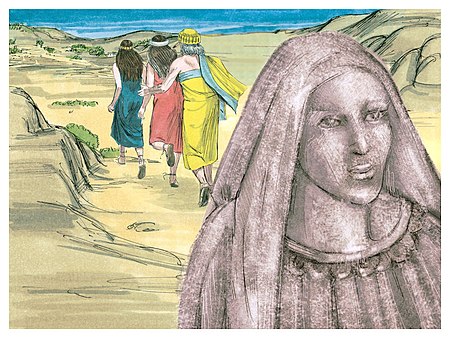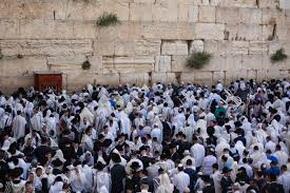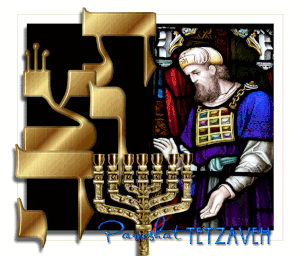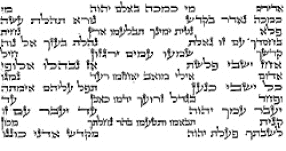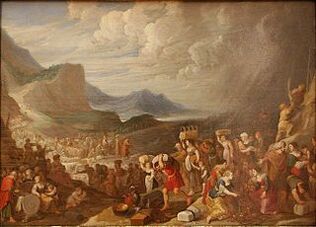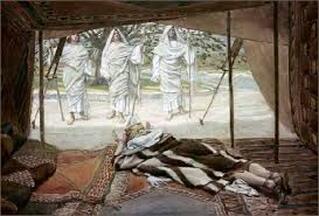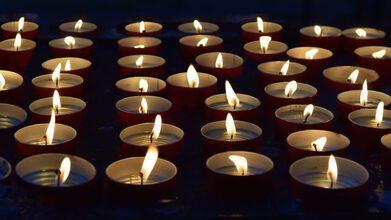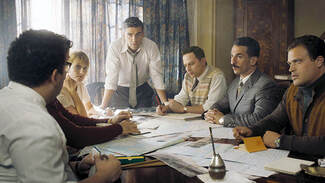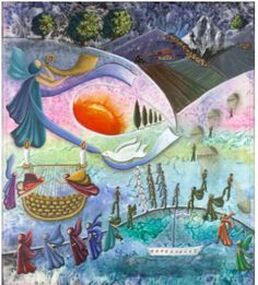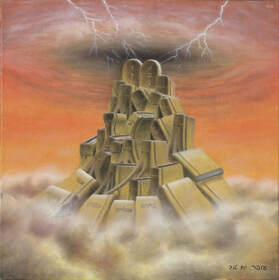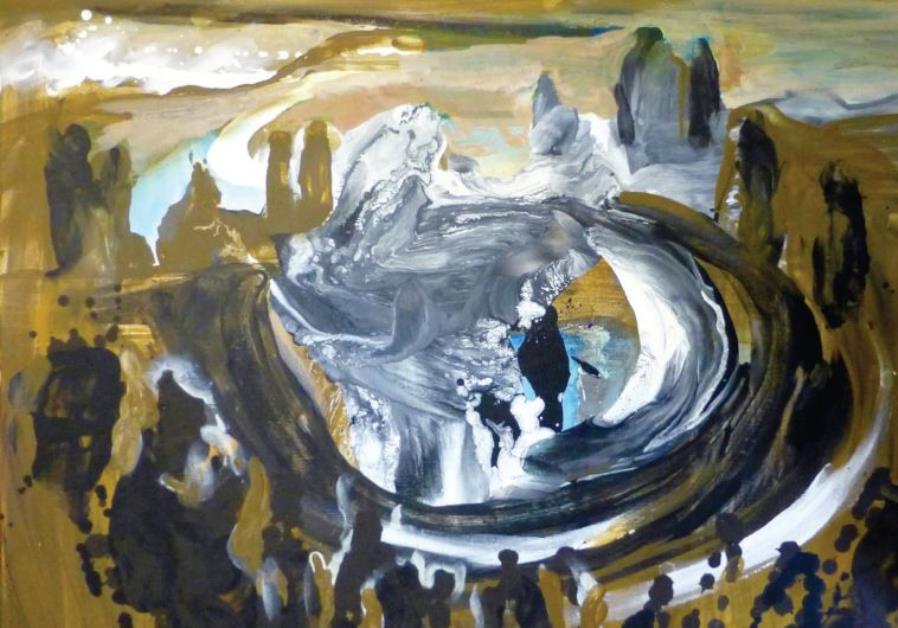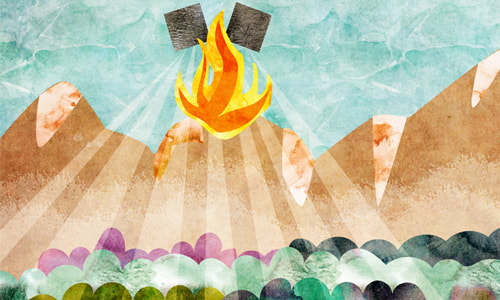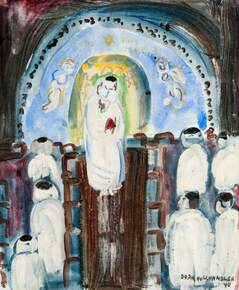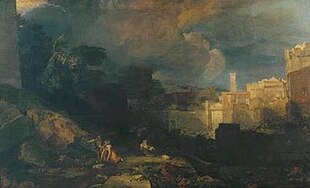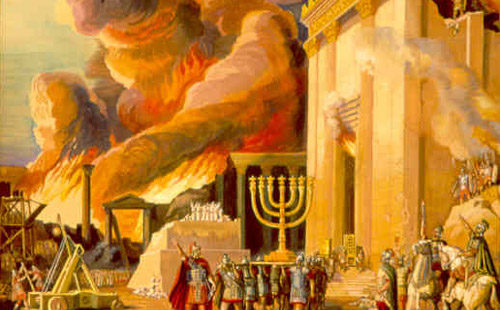As a local community shul with no formal Rabbi, we are privileged to have the spiritual and thought leadership of our dedicated Cantor, Irwin Gelma who leads our services, prayers and songs, and brings us well-composed inspirational messages every Shabbat and High Holiday service. You can read Cantor Gelman's archive collection of sermons below. Select your favorite Parshat, or read them all to catch up on anything you may have missed throughout the year!
Rosh Hashanah 1st Tishrei 5781Of course, we all know that Rosh Hashanah means the New Year, and thus, the new Hebrew month we are celebrating, Tishrei, is the first month of the New Year, right? Wrong! In fact, it’s the seventh month. This has always been a curious twist, even to the rabbis of the last two thousand years: why is it that Rosh Hashanah begins in the seventh month whereas Pesach/Passover begins in the first month, the month of Nissan? One must remember that as the Hebrew calendar is lunar, it is not connected to natural events of the solar year, such as the winter and summer solstices.
|
Parshat Mishpatim 19th Sh'vat 5780This week’s parsha is Mishpatim, literally meaning, “the Laws”. The 613 mitzvot in the Torah are divided into three categories: mishpatim- laws that are self-evident based on our moral code, such as “do not steal” or “do not murder”. Edot are “testimonies” based on events. For example, that the Shabbat testifies to G-d’s created the world in 6 days and rested on the seventh, making it holy. Chukim are decrees that have no rationale, such as our laws of kashrut;we obey them because they are G-d’s decree.
|
Parshat Vayera 13th Cheshvan 5780Today, I want to discuss "humor". To Jews, this should come easy, because frankly, we have been through a lot, and one of the ways that we have survived throughout the ages pogroms, inquisitions, auto-da-fé, prejudice, institutional and individual anti-Semitism, assimilation, and the greatest threat: mothers-in-law, is through humor. campaign_2.pdf
|
Parshat Chukat 10th Tammuz 5779
As I have spoken about before, there is a rise of what is now called "social genetics", where individuals look to companies such as Ancestry.com or 23&Me to identify their ethnicity markers. There seems to be a rabid curiosity about which group defines your heritage, and the fact that prices for these assays have dropped considerably has only intensified this personal hunt.
|
Parshat Nasoh 12th Sivan 5779For 25 years, I lived in New York City, and I relished in the fact that I rarely found myself in midtown, especially during the day when sidewalks were filled with herds of people that looked, and felt, like a cattle drive. You’ve seen those scenes on TV programs and in movies: the throngs of workers saturating the sidewalks, all those soul-less zombies coming and going somewhere.
|
Parshat Titzaveh-11th Adar I 5779Among the many themes in the book of Beresheet, Genesis, is that of sibling rivalry. Horrible crimes are committed so as either to prevent one brother from inheriting their place as rightful heir or from their position as their father's favorite- even though they are not he firstborn. Cain kills Abel; Isaac's inheritance of his father's line is insured by his mother, Sarah, who banishes Abraham's actual firstborn son, Ishmael; Jacob literally steals the firstborn blessing destined for Esau from his blind father; Jacob's sons conspire to banish their father's favorite, Joseph, all the while suggesting to their father, Jacob, that Joseph was dead....
|
Parshat Beshalach-13th Sh'vat 5779On a Monday evening, on March 5, 1770, members of the British 29th Regiment of Foot Soldiers, having been placed in Boston to protect crown-appointed colonial officials from collecting an unpopular tax, opened fire on a harassing mob, who sought to vent their anger at the Crown on these regular soldiers. In an instant, three colonists were killed, with two more dying later of their wounds. As made famous by pamphleteers such as Paul Revere and Samuel Adams, this incident became known as the Boston Massacre, and was described as a dastardly attack on innocent civilians by armed British soldiers. Adams and Revere heavily disseminated their publications- which were effectively the Tweets of their time, under the names, Sons of Liberty, to encourage rebellion against the British authorities...
|
Parshat Vayechi-14th Tevet 577950 years ago, our country seemed in turmoil: 1968 witnessed the assassinations of Rev. Dr. Martin Luther King Jr. and Bobby Kennedy, the Tet Offensive in Vietnam that devastated American and Allied forces, massive anti-war protests on college campuses and actual riots at the Democratic National Convention in Chicago, the Prague Spring drive for democracy in Czechoslovakia that was violently put down by the Soviet Union, an unprovoked seizure of the US Naval ship Pueblo by North Korea that threatened to rekindle war in the Korean peninsula. The downtowns of many U.S. cities burned in race riots; our world, over government, the fabric of what makes us a nation was at the verge of tearing apart...
|
Parshat Vayetzei-9th Kislev 5779A catholic priest, a Protestant minister and a rabbi would meet often to compare notes about how their preached to their respective flocks. One day, the comment was made that preaching to people may not be that hard; preaching to bear- that would be hard. So they agreed to go out into the woods, find a bear, preach to it, and then come back and share their experiences. They met back after a week.....
|
Parshat Vayera- 18th Cheshvan 5779Three old Jews are sitting by their condo's pool, when the first turns to the second and says in a sigh, "Oy...". The second, not wanting to be outdone responds "Oy vey...". The third then becomes indignant and says, "I thought we promised not to talk politics!"
Believe it or not, the rabbis had something to say about the significance of the Krekhtz, that very Jewish of sighs that seems to become more frequent as Jews age, probably turned on by late-onset genes enriched in us Jews. |
Kol Nidre 9th Tishrei 5779There's a famous Chasidic story of a pintele yid, an everyday Jew that has an indestructible core of Jewishness. The scene is a pintele yid sitting in the packed third-class section of an overnight train moving through the frozen backdrop of Russia in the days of the Tsar, when anti-Semitism was quite alive and well. This pintele yid was deep into reciting the psalms, the tehelim, quietly humming a niggun, yai-di-dai yai-di-dai, swaying back and forth in his fervor. Just then, a Russian police officer, who did not take friendly to Jews, walked up the train car's aisle and confronted the yid. "Jew! What are you doing on my train?"
|
Yom Kippur -10th Tishrei 5779
Today, I want to discuss a topic that concerns each and every one of us: death. Death is an inevitability that befalls each of us, yet few of us are prepared for it, and many of us fear it greatly. It was Mark Twain, a passer through Buffalo, who said, “The fear of death follows from the fear of life. A man who lives fully is prepared to die at any time.” But it was Woody Allen who said: “I’m not afraid of death; I just don’t want to be there when it happens.”
|
Rosh Hashanah II - 2nd Tishrei 5779A movie currently in theaters, Operation Finale, tells the story of a squad of Mossad agents sent in 1960 to capture Adolf Eichmann, known as the Architect of the Final Solution, who is hiding out in Argentina as Ricardo Klement. Much of what the world first learned about what were the horrors of the Holocaust came from world-wide broadcasts of the Eichmann trial and the subsequent book by Hannah Arendt, “Eichmann in Jerusalem: A report on the banality of evil”.
|
Parshat Shoftim- 7th Elul 5778
Imagine the scene: somewhere on a mountainous plains of what is now Jordan, overlooking the south tip of the Dead Sea, there an encampment of hundreds of thousands of Israelites, spatially organized according to their tribes, sit and listen to Moses spend one full afternoon reviewing the whole Torah- all its lessons and laws, all it stories about slavery and freedom. This one long discourse is what is the whole 5th book of the Torah: Deuteronomy, דברים.
|
Parshat Va’etchanan-16th Av 5778
A very worthy Jewish tradition which has fallen out of favor in the past century, is the writing of ethical wills, tzava’ot. It is said that tradition came from Jacob, on his deathbed, telling his recently reunited sons of his wishes regarding where he wanted to be buried as well as his blessings, and warnings, to each of his sons. For centuries, Jewish fathers and mothers would instruct their children through these wills to carry out mundane wishes such as burial instructions or how to pay off debts. Yet what made these documents so potent, and what we miss today, is that tzava’ot mainly focused on passing down a lifetime of wisdom and an ethical framework for the continuation of Jewish values to the next generations.
|
Parshat Korah- 3rd Tamuz 5778
When teenagers in the 1980s or 90s were asked what they wanted to be "when they grew up", their answers were just updated versions of the professions that were exciting and sexy in my youth: astronauts and marine biologists were replaced with software developer, molecular neurobiologist, or day-trader. Starting in the early 2000s, a new phenomenon arose; when teenagers were asked the same question- what do you want to become, the answer was, "famous".
|
Parshat Bamidbar- 5th Sivan 5778The summer brings one repeating delight for me, and that is the study of Pirchay Avot, The Ethics of Our Fathers. This is a collection of easy-to-understand, practical and of course, highly ethical sayings, each of which fits on its own bumper sticker. One of the most famous quotes is about "Who is rich? One who takes happiness with his portion." One of the main lessons of Mussar is gratitude, the ability to appreciate one's portion.
|
Parshat Vayikra- 1st Nissan 5778/Rabbi Ismar Schorsch, the Chancellor Emeritus of the Jewish Theological Seminary in NY, relates how he never heard his parents call each other by their first names. His father called his mother, Mutti, from the German word for Mother, and his mother called his father by the German word for treasure, “Schatzi”. I can attest that I only learned of my first name when I was 5 years, when my mother introduced me to my first-grade teacher as “Irwin”. Previous to that, I was “Hartzi” or “meine Hartzele”, meaning “my heart”.
|
Parshat Titzaveh- 9th Adar 5778Among the many themes in the book of Beresheet, Genesis, is that of sibling rivalry. Horrible crimes are committed so as either to prevent one brother from inheriting their place as rightful heir or from their position as their father's favorite- even though they are not he firstborn. Cain kills Abel; Isaac's inheritance of his father's line is insured by his mother, Sarah, who banishes Abraham's actual firstborn son, Ishmael; Jacob literally steals the firstborn blessing destined for Esau from his blind father; Jacob's sons conspire to banish their father's favorite, Joseph, all the while suggesting to their father, Jacob, that Joseph was dead.
|
Parshat Bo- 4th Sh'vat 5778In this week's Torah reading, in parshat Bo, G-d sends the last three, and most devastating, plagues to Egypt: locust, darkness and death of the firstborn. The plague of locust wiped out the bounty of the Egyptian harvest, a contrast to the story of Joseph, in which he predicted that Egypt would become rich by providing that abundance to surrounding nations who were subject to famines.
|
Parshat Meeketz- 28th Kislev 5778While Jews celebrate the Festival of Lights worldwide, where we focus on the miracle of the menorah oil that lasted 8 days, the lesser known story of Hanukkah, and historical context of why we celebrate the Festival of Lights, is that of the Maccabees. In reality, Hanukkah commemorates the Maccabean Revolt, which took place from 167-160 BCE, and how the Jewish rebel Judas Maccabeus defeated the Greek emperor Antiochus, ultimately rededicating the Holy Temple in Jerusalem, where the miracle of the oil occurred.
|
Yom Kippur 10th Tishrei 5778Many of themes we are meant to review for ourselves during this High Holiday season are found in subtle places in the prayers of the Machzor, the High Holiday prayer book. One curious theme comes from a passage in Deuteronomy, דְּבָרִים. Moses is sitting in front of the whole congregation of the Israelites, who are encamped in the southwestern hills of what is now Jordan, where they can see down to the land of Israel, the final destiny back to the land they wandered through the Sinai to find.
|


